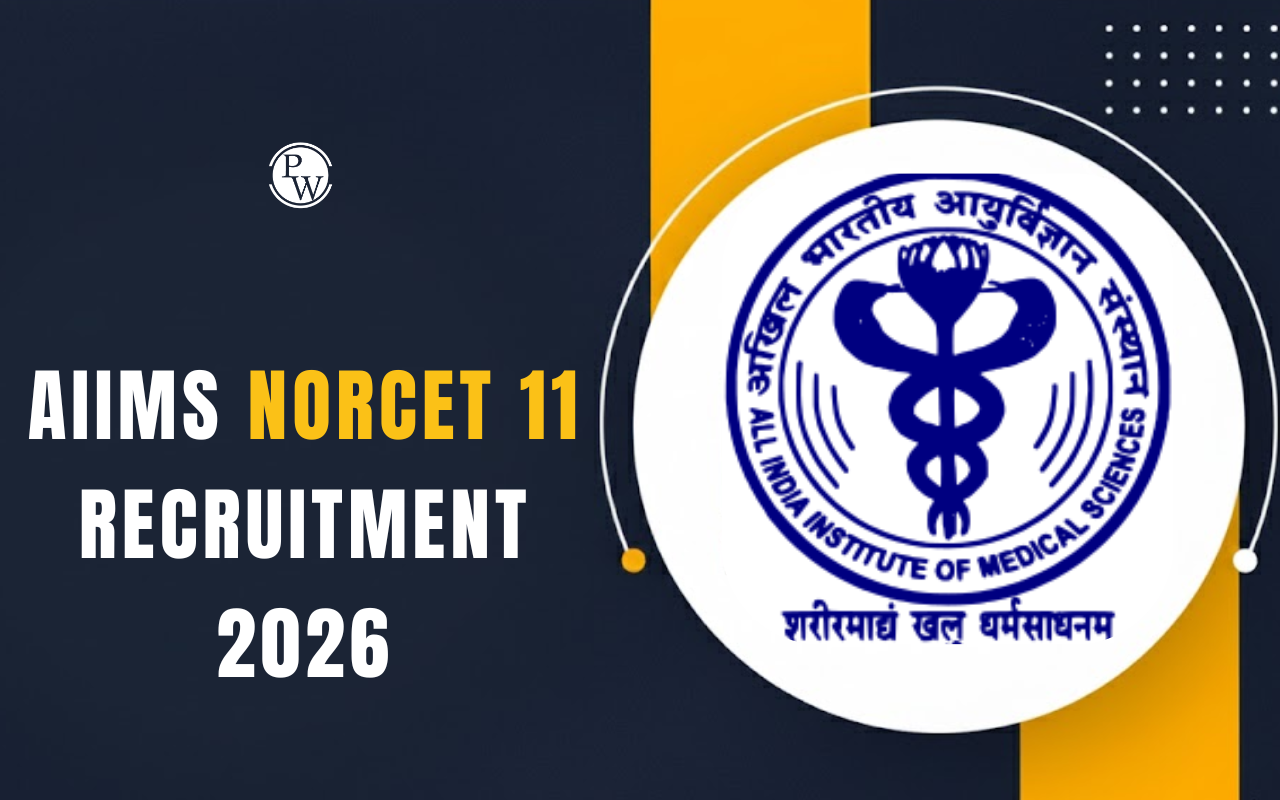
Mental Health Nursing Definition: Mental health nursing is a crucial component of healthcare that often operates behind the scenes, addressing the intricate and delicate needs of individuals grappling with mental health challenges. In this blow, we’ll talk about mental health nursing definition, roles and responsibilities of mental health nurses, places where mental health nurses work, and much more!
Mental Health Nursing Definition
Mental health nursing is about giving specialised care to those dealing with mental health issues. These professionals are crucial for promoting mental well-being, preventing illnesses, and helping those in recovery. They go beyond just addressing symptoms, considering the whole person—physical, emotional, and social aspects.Who Are Mental Health Nurses?
Mental health nurses possess a unique set of characteristics and qualifications that distinguish them in the healthcare landscape. Compassion, empathy, and patience are foundational traits, enabling these professionals to connect with and support individuals experiencing mental health challenges. Educational requirements typically include a nursing degree, often a B. Sc in Nursing, and specialised training in mental health. The educational journey of a mental health nurse is a rigorous yet rewarding one. A solid foundation in general nursing principles is complemented by specialised coursework in mental health. Nurses get training to handle mental health complexities, therapeutic methods, and crises. To be a mental health nurse, you need the right certifications and licences. These credentials ensure that nurses meet the professional standards required to provide quality care. Additionally, certifications in psychiatric nursing may be pursued, further validating a nurse's expertise in the mental health domain.Psychiatric Nursing Definition
While mental health nursing is a broad term, psychiatric nursing homes in on the specific care of individuals with diagnosed mental health disorders. It involves a deep understanding of psychiatric conditions, their manifestations, and evidence-based interventions to promote recovery.Who Is a Psychiatric Nurse?
Psychiatric nurses are specialists managing mental health complexities. They assess, diagnose, and create tailored care plans. Besides clinical skills, communication and a non-judgmental approach are crucial in building therapeutic relationships. These nurses navigate mental health challenges with compassion, staying attuned to emotional needs. They support and encourage patients during recovery. Collaboration is key in psychiatric nursing. Working closely with psychiatrists, psychologists, and others, they ensure a holistic approach to care, leveraging diverse expertise for optimal outcomes.Roles and Responsibilities of Mental Health Nurses
Mental health nurses wear multiple hats, each contributing to the overall well-being of their patients. Their roles and responsibilities can be categorised into several key areas: Comprehensive Assessment and Diagnosis Mental health nurses are adept at conducting thorough assessments to understand the unique challenges individuals face. This involves evaluating a patient's mental health history, current symptoms, and factors contributing to their condition. The nuanced understanding gained through these assessments allows nurses to formulate accurate diagnoses, a critical step in tailoring effective and personalised care plans. Development and Implementation of Care Plans Building upon their assessments, mental health nurses take the lead in developing comprehensive care plans. These plans serve as roadmaps for treatment, incorporating therapeutic interventions, medication management, and supportive strategies. The dynamic nature of mental health requires ongoing evaluation and adjustments to care plans to address the evolving needs of patients and optimise their chances of recovery. Support and Therapeutic Interventions Mental health nursing centres on backing individuals emotionally and psychologically. Nurses lead one-on-one and group therapy sessions, fostering a secure space for patients to share and explore coping methods. They utilise evidence-based therapeutic approaches like cognitive-behavioural therapy (CBT) and dialectical behaviour therapy (DBT) to empower recovery. Crisis Intervention and De-escalation In handling mental health crises, nurses are equipped with crisis intervention and de-escalation skills. In both inpatient and community settings, they stay composed, using tactics to diffuse crises and ensure safety for everyone involved. Medication Management Collaborating closely with psychiatrists, mental health nurses play a crucial role in medication management. They educate patients about prescribed medications, monitor their effects, and address any side effects or concerns. This collaborative approach ensures a holistic understanding of the patient's response to treatment, facilitating informed decision-making regarding medication adjustments. Advocacy for Patients with Mental Health Issues Mental health nurses vigorously champion the rights and well-being of their patients. Their advocacy transcends clinical boundaries, striving to destigmatize mental health, raise awareness, and lobby for policies enhancing mental healthcare access. By amplifying the voices of those grappling with mental health, nurses contribute to societal shifts. Education and Health Promotion Prevention is key in mental health nursing. Nurses conduct educational initiatives in communities, schools, and workplaces to boost mental health awareness. By spreading information on stress management, coping strategies, and early signs of mental health issues, they empower proactive steps in mental well-being. Collaboration within Interdisciplinary Teams Mental health nurses play pivotal roles in interdisciplinary healthcare teams. They collaborate with psychiatrists, psychologists, social workers, and others for a holistic patient care approach. This teamwork ensures a full grasp of patient needs and a coordinated response addressing both medical and psychosocial facets. Community-Based Services and Outreach In recognizing the significance of community support, mental health nurses actively engage in community-based services and outreach. Collaborating with schools, community centres, and local organisations, they identify and address mental health needs at grassroots levels, fostering supportive environments for long-term recovery. Research and Evidence-Based Practice Staying current on mental healthcare advancements, nurses contribute to research and evidence-based practices. Their involvement in research initiatives adds to the evolving mental health nursing knowledge. This dedication to evidence-based practices enhances the quality of care for patients.How Long Does It Take to Become a Psychiatric Nurse?
The journey to becoming a psychiatric nurse in India requires dedication, resilience, and a passion for mental health. The exact timeframe can vary depending on individual paths and chosen specialisations, but here's a breakdown of the main steps and their typical durations:- Pre-Nursing Education (12 years):
- Secondary School: 10 years (ages 6-16)
- Higher Secondary School with Science subjects: 2 years (ages 17-19)
- Nursing Bachelor's Degree (4 years):
- Bachelor of Science in Nursing (B.Sc. Nursing): 4 years (ages 19-23)
- Post-Graduation and Specialization (2-4 years):
- Master of Science in Psychiatric Nursing (MSc. Psychiatric Nursing): 2 years (ages 23-25)
- Optional Specialisation (Advanced Diploma): 1-2 years (additional training in areas like Child & Adolescent Psychiatry, Geriatric Psychiatry, etc.)
- Registration and Licensure:
- Registration with the Indian Nursing Council (INC) is mandatory to practice.
- Depending on the State Nursing Council regulations, additional registration might be required.
- Entrance Exams: Competitive exams like NEET-PG and state-level exams can delay admission to post-graduate programs.
- Gaps between academic stages: Personal decisions or financial needs may lead to breaks in the educational timeline.
- Specialisation selection: Advanced diplomas add extra time after the MSc degree.
Where Do Mental Health Nurses Work?
Mental health nurses are versatile professionals who can be found in various healthcare settings, addressing the diverse needs of individuals facing mental health challenges. Hospital Settings:- Psychiatric Intensive Care Units (PICUs): Similar to medical ICUs, these units cater to patients in critical mental states requiring constant monitoring and specialised interventions. Mental health nurses in PICUs possess advanced skills and work closely with psychiatrists and other specialists.
- Outpatient clinics: These clinics offer ongoing support and treatment to patients after discharge from inpatient care or for those with less severe conditions. Mental health nurses here conduct assessments, provide therapy, manage medication, and coordinate care with other healthcare providers.
- Specialised Units: Some hospitals have units dedicated to specific populations, like children and adolescents, geriatric patients, or individuals with eating disorders. Nurses in these units specialise in their respective populations' unique needs.
- Community Mental Health Centres: These centres offer a range of services, including individual and group therapy, medication management, and crisis intervention. Nurses here play a crucial role in providing accessible and comprehensive care.
- GP Surgeries: Mental health nurses increasingly work within GP practices, offering initial assessments, brief therapy, and referrals to specialist services. This helps integrate mental health care into primary care.
- Prisons: In correctional facilities, mental health nurses provide critical support to inmates with mental illnesses, helping them manage their symptoms and reintegrate into society.
- Residential Facilities: Some individuals require longer-term care in supported housing or rehabilitation centres. Nurses in these settings provide daily living support, therapy, and crisis intervention.
- In-Home Care: Mental health nurses can also provide care in patients' own homes, offering therapy, medication management, and support for individuals struggling to access traditional services.
- Schools: Some nurses work in school settings, supporting students with mental health needs and promoting emotional well-being.
- Non-profit Organisations: Mental health advocacy and research organisations often employ nurses to conduct research, develop programs, and advocate for improved mental healthcare access.
- Private Practice: Advanced practice nurses can set up their own private practice, offering individual and group therapy for patients seeking personalised care.
How Do Mental Health Nurses Differ From Psychiatrists, Psychologists, and Social Workers?
While mental health professionals collaborate closely, each role brings a unique perspective and set of skills to the table. Scope of Practice:- Psychiatrists: Primarily focus on medication management and diagnosis. They may offer some talk therapy, but this often constitutes a smaller part of their role. Some states allow psychiatric nurse practitioners (PNPs) to prescribe medication under physician supervision.
- Psychologists: Primarily utilise psychotherapy and psychological assessments to diagnose and treat mental health conditions. They may collaborate with psychiatrists on medication management but generally do not prescribe themselves.
- Social Workers: Address the social determinants of mental health through counselling, support groups, resource navigation, and case management. They often work with families and communities to promote mental well-being.
- Mental Health Nurses: Offer a holistic approach, providing direct patient care, education, coordination with other healthcare professionals, crisis intervention, and support for medication management. They often work in hospitals, clinics, and community settings.
- Psychiatrists: Tend to take a biological and medical approach, emphasising medication management and addressing the physiological aspects of mental health conditions.
- Psychologists: Take a cognitive and behavioural approach, focusing on how thoughts, emotions, and behaviours interact to impact mental health. They use psychotherapy to address these patterns and promote positive change.
- Social Workers: Take a holistic and systemic approach, considering the social environment, family dynamics, and access to resources when addressing mental health challenges. They advocate for individuals and communities and connect them with needed support.
- Mental Health Nurses: Combine elements of all approaches, offering patient education, emotional support, crisis intervention, medication management coordination, and advocacy. They play a crucial role in bridging the gap between medical and psychosocial care.
Mental Health Nursing FAQs
Can Mental Health Nurses Prescribe Medications?
No, mental health nurses cannot prescribe medications. They collaborate closely with psychiatrists, who have the authority to prescribe. Mental health nurses monitor medication effects, educate patients, and ensure holistic treatment understanding.
How Do Mental Health Nurses Address Cultural Sensitivity in Care?
Mental health nurses prioritise cultural sensitivity by respecting diverse backgrounds and beliefs. They create inclusive environments, acknowledging cultural nuances affecting an individual's mental health journey.
Are Mental Health Nurses Involved in Research Activities?
Yes, mental health nurses actively contribute to research, enhancing evidence-based practice. Their participation ensures interventions are informed by the latest evidence, improving overall care quality.
What is the Role of Mental Health Nurses in Community-Based Services?
Mental health nurses play a vital role in community-based services, collaborating to identify mental health needs. By fostering connections and providing education, they contribute to creating supportive environments at the community level.
How Do Mental Health Nurses Address Mental Health Stigma?
Mental health nurses combat stigma through advocacy, engagement, and open conversations. They actively work to destigmatize mental health, fostering a more understanding and inclusive environment.
🔥 Trending Blogs
Talk to a counsellorHave doubts? Our support team will be happy to assist you!

Free Learning Resources
PW Books
Notes (Class 10-12)
PW Study Materials
Notes (Class 6-9)
Ncert Solutions
Govt Exams
Class 6th to 12th Online Courses
Govt Job Exams Courses
UPSC Coaching
Defence Exam Coaching
Gate Exam Coaching
Other Exams
Know about Physics Wallah
Physics Wallah is an Indian edtech platform that provides accessible & comprehensive learning experiences to students from Class 6th to postgraduate level. We also provide extensive NCERT solutions, sample paper, NEET, JEE Mains, BITSAT previous year papers & more such resources to students. Physics Wallah also caters to over 3.5 million registered students and over 78 lakh+ Youtube subscribers with 4.8 rating on its app.
We Stand Out because
We provide students with intensive courses with India’s qualified & experienced faculties & mentors. PW strives to make the learning experience comprehensive and accessible for students of all sections of society. We believe in empowering every single student who couldn't dream of a good career in engineering and medical field earlier.
Our Key Focus Areas
Physics Wallah's main focus is to make the learning experience as economical as possible for all students. With our affordable courses like Lakshya, Udaan and Arjuna and many others, we have been able to provide a platform for lakhs of aspirants. From providing Chemistry, Maths, Physics formula to giving e-books of eminent authors like RD Sharma, RS Aggarwal and Lakhmir Singh, PW focuses on every single student's need for preparation.
What Makes Us Different
Physics Wallah strives to develop a comprehensive pedagogical structure for students, where they get a state-of-the-art learning experience with study material and resources. Apart from catering students preparing for JEE Mains and NEET, PW also provides study material for each state board like Uttar Pradesh, Bihar, and others
Copyright © 2026 Physicswallah Limited All rights reserved.









